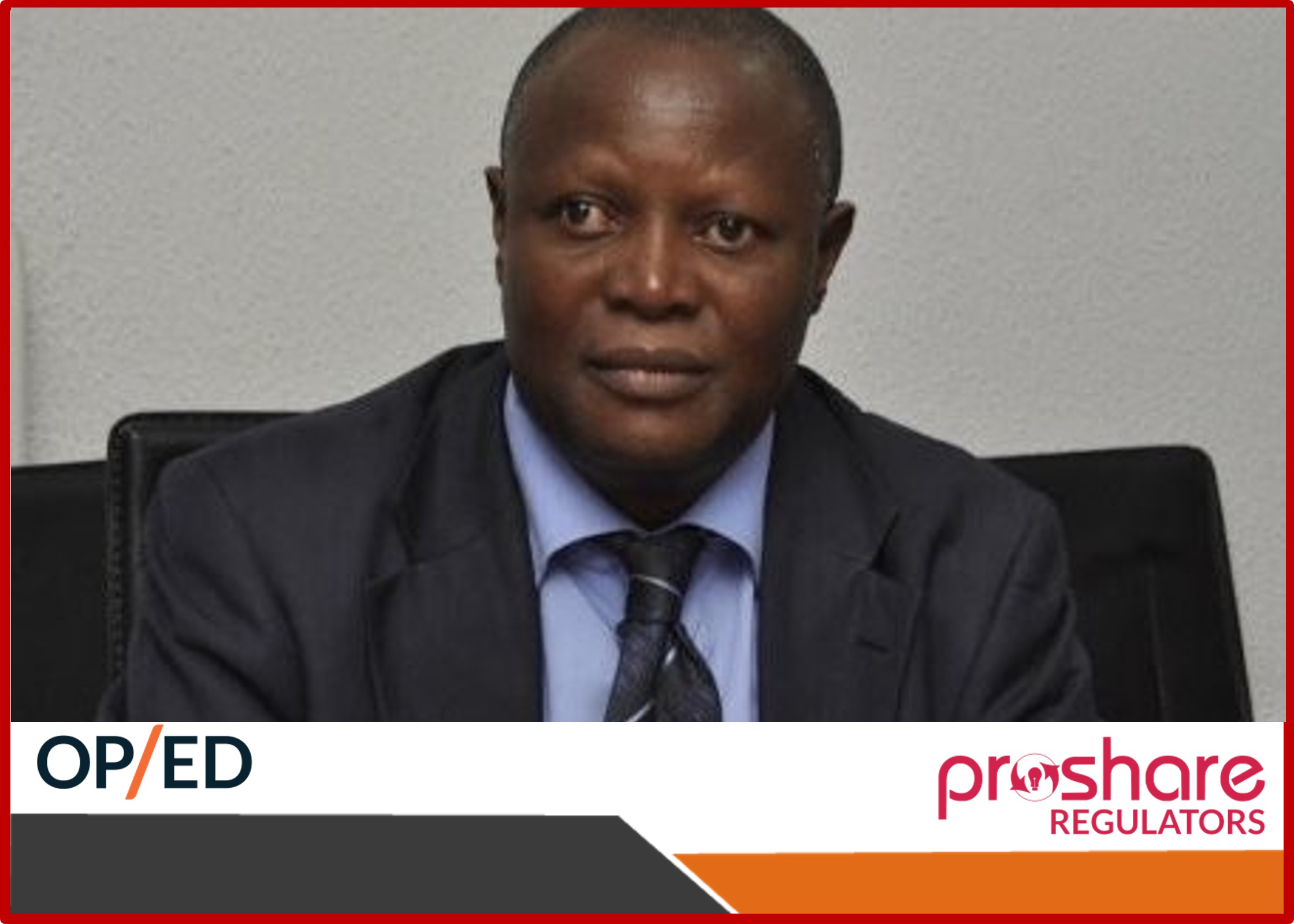Wednesday, September 29, 2021 / 3:25 PM /OpEd by Sola Oni / Header Image Credit: Sola Oni
Amild drama over disclosure of corporate deficit and returns ensued early thismonth between the Securities and Exchange Commission (SEC) and the Senate JointCommittee on Finance, National Planning, Petroleum Upstream, Downstream andGas. As evidence of accountability, SEC had in a document to the Committeedisclosed that it recorded a N9 billion deficit in the last three years.
TheSenate Panel escalated the transparent disclosure into headlines, expressingconcerns that the staggering amount might plunge the Commission intobankruptcy. Considering the reputational damage that such a headline may costthe Commission, its soft-spoken Director-General, Dr. Lamido Yuguda, in astatement, quickly disclosed the other side of the story, saying SEC had in thereview period remitted N1.5 billion into the Federation Account. In contrast,25 percent of the Commission's gross revenue was paid to the Federation Accountin June this year. The Commission also assured the Senators that it wouldreturn to profitability in the next two years following cost-cutting measuresput in place.
Thisscenario has raised a polemic question on the strategic focus of SEC as theCapital Market Apex Regulator and its funding structure.
Globally,Securities and Exchanges' Commissions perform similar roles but operatedifferent funding structures. At the basic level, every SEC "protectsinvestors, maintains fair, orderly and efficient markets; and facilitatescapital formation".
TheSEC strives to promote a market environment that is worthy of public trust...".This implies that SEC is not for-profit-making, instead a regulatory Agencythat ensures investor protection and custodial of rules of capital formationand its enforcement. But SEC requires adequate funding to enhance its operationas the policeman of the market. The government funds the United StatesSecurities and Exchange Commission in Washington DC through appropriationprocesses of Congress.
Fillingsin the United States capital market do not require fees, while registrationsattract minimal charges. Despite this, the Commission generates funds abovewhat it receives from the government because of prominent participants.However, with its expanded responsibilities of policing the market, coupledwith inadequate funding by the government, it is requesting self-funding.
Inthe United Kingdom, Financial Conduct Authority (FCA) is the equivalent of theSecurities and Exchange Commission.
Itis an independent public body, accountable to the Treasury but funds itsoperation through the companies' fees.
InChina, China Securities Regulatory Commission (CSRC), a ministerial-levelpublic institution under the State Council, drives the securities market. InJapan, the Securities and Exchange Surveillance Commission (SESC) regulates thecapital market, while in Hong Kong, the Securities Futures Commission (SFC) isself-funding through levies on transactions conducted on the Stock Exchange ofHong Kong (SEHK), the Hong Kong Futures Exchange (HKFE) and other fees chargedto market participants. These securities markets do not remit the fund to thegovernment account.
TheSEC in Nigeria is a government oversight agency that regulates the capitalmarket, primarily through investor protection and ensures allocative efficiencyof the market. The senators' recent lamentation on the liquidity position ofSEC and expectation of higher returns to the government's treasury is curious.Operations of Nigeria's SEC are supposed to be subsidized with the government'sgrant.
Thiswill reduce SEC's over-dependent on fees from charges and penalties, make themarket more competitive and enhance its regulatory fairness.
Thefinancial obligation to the government has probably pushed the Commission intoimposing two-year accumulated penalties on some dealing-member firms recently,running into millions of Naira over their failure to render reports of anyclient that uses laundered money for investment.
Meanwhile,the Nigerian Financial Intelligence Unit (NFIU) has directed such reports to bechanneled to it rather than any government agency. This has put dealing memberfirms in a quandary.
Whydid the Commission wait two years without serving the "erring" dealing membersqueries only to penalize them with huge fines? The affected firms are already inpanic mode.
Letus sympathize with SEC. The Commission is broke. But it had benefited duringthe market boom and should creatively manage the burst. Investor apathy isfuelled by the inclement operating environment, characterized by insecurity andmacroeconomic vagaries.
Notwithstanding,the capital market in Nigeria remains resilient and a rewarding platform forreal investors. In a chat with a respected senior stockbroker last week on thefuture of the market, he made a poignant summary: "SEC needs to look at how itcan make the market buoyant now.
Unfortunately,it seems unbothered. The fundamental problem is investor confidence. There is ahigh level of apprehension about the market, and some people are still playinggames. Government has a fiscal crisis. It will want SEC to fund itself. But theCommission should be concerned with the market stability and the cost of thetransaction. As for penalties, the Commission should note that it can chargethe operators out of existence."
Itis concentric circles of challenges. The Commission is working hard butfighting many battles. It is desperately chasing liquidity in the market,contending with uncertainties. Many dealing member firms currently sufferfinancial hemorrhage.
SECmust maintain careful balancing; this is the burden of regulation. SEC'sfunctions have taken over by the Central Bank of Nigeria (CBN), the soleAdministrator of Commodities Exchange.
TheCommission is not represented in the CBN's Monetary Policy Committee (MPC), toexplain the implications of every monetary policy on the capital marketoperations before implementation. By this gap, when Godwin Emefiele sneezes,Yuguda catches a cold and passes it to Oscar Onyema. It is long overduefor the Ministry of Finance to grant more autonomy to SEC for unfettereddischarge of its regulatory functions. The Commission is no longer a departmentof the apex bank.
SolaOni, an Integrated Communications Strategist, Chartered Stockbroker andCommodities Broker, is the Chief Executive Officer, Sofunix Investment andCommunications
Related News
1. Capital Market Can Help Bridge InfrastructureGap - SEC
2. The Requirements for Dealing in ForeignSecurities in Nigeria and the Role of the Regulators
3. Senate Raises Alarm as SEC Declares N9bn Deficitin Three Years
4. Crowdyvest Promises Maximum Compliance withRegulators; Assures Members of Safe Funds
5. SEC Seeks Collaboration on Dispute Resolution inCapital Market
6. SEC Re-opens Its Renewal Portal for CMOs
7. SEC Nigeria Receives AfDB's Grant to FinanceRisk-Based Supervision Framework Implementation
8. SEC Inaugurates Securities Issuers Forum
9. SEC Proposes Major Amendments to Part E Rules onSecurities Exchanges
10. SEC Proposes New Rule and Sundry Amendments toits Rules on Penalties Disclosure
11. SEC Proposes Amendments to Its Rules on HalfYearly Returns, Depository and Participants
 Lagos, NG • GMT +1
Lagos, NG • GMT +1











 1569 views
1569 views










 Sponsored Ad
Sponsored Ad
 Advertise with Us
Advertise with Us







